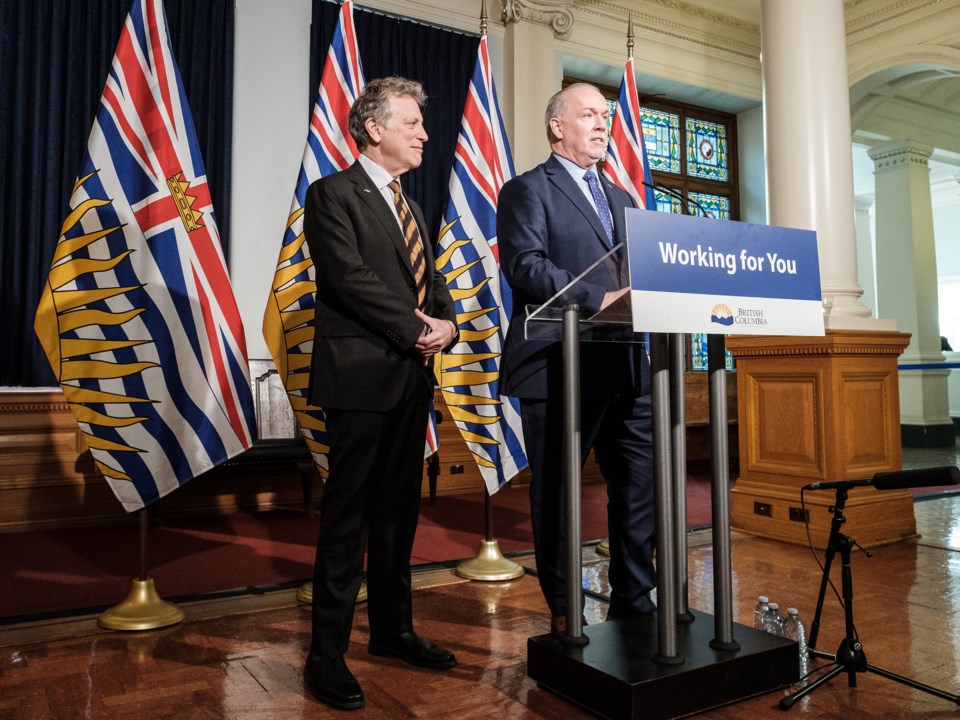Premier John Horgan says his government isn’t backing down on its attempts to protect B.C.’s coast from a potential diluted bitumen spill, but will ask the courts to clarify whether the province has the constitutional authority to restrict any increased volume of dilbit flowing through B.C.
In response, Alberta Premier Rachel Notley reportedly has announced she is rescinding a boycott on B.C. wine.
At the end of January, B.C. Environment Minister George Heyman announced a five-point plan that was essentially designed to prevent the $7.4 billion expansion of the Trans Mountain pipeline.
The proposed new regulations included requiring compensation for loss of public and “cultural” use of land impacted by spills from pipelines or railways and new geographic response plans.
The government plans to continue moving forward with public consultations on those proposed measures.
But the government will wait for a court ruling before moving ahead on the most contentious measure – a proposed restriction on any increased volumes of diluted bitumen through B.C. by rail or pipeline, until a special scientific panel could complete a study to fill in knowledge gaps about spill risks and mitigation – a process expected to take a couple of years.
Alberta Premier Rachel Notley immediately responded to B.C.’s plans by cancelling talks between her province and B.C. on future increased sales of power to Alberta, and then later implemented a boycott of B.C. wine.
Notley characterized B.C.’s move as illegal and unconstitutional, saying pipelines are a federal jurisdiction and that provinces have no authority to determine what does or doesn’t flow through a federally approved pipeline.
On Thursday February 22, Horgan reiterated that he thinks B.C. does have that authority, but will ask the courts for a ruling to settle the question.
“This point has generated disproportionate and unlawful reactions from the government of Alberta,” Horgan said. “Actions that threaten an entire industry and the livelihoods of the people who depend on it.”
He also reiterated that B.C. plans to appeal Alberta’s wine boycott through the Canada Free Trade Agreement.
Under that agreement, Alberta could face fines – something Notley has already shrugged off as chump-change compared to the $1.5 billion her province stands to lose annually if B.C. succeeds in killing the Trans Mountain pipeline expansion.
Horgan said his government will continue moving ahead with public consultation on four of its proposed measures. But on the fifth, his government will wait for a ruling from the courts. The exact question has not yet been framed.
“The outcome of that reference will also be used to inform any next steps B.C. intends to use to defend our interests,” Horgan said.
Asked if the reference to the courts should be read as a sign B.C. is backing down, Horgan said “not at all.”
“This was intended to have cooler heads prevail,” he said.
“We have had other jurisdictions question our authority in this area. We’ve tried to work with the federal government to do a joint reference. They’re not interested in that, so we’re going it alone.
“What we’re announcing today is that we’re going to proceed with the four points that were not contentiou
Our intention today is to proceed with the consultation that Mr. Heyman announced on January 30,” Horgan said. “The contentious point that has drawn the ire of the province of Alberta and some consternation from the federal government will be put to the courts.”
@nbennett_biv



